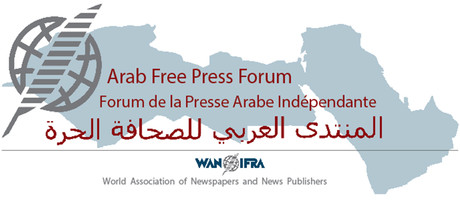As citizen journalism thrives in the Arab world, led by the explosion of Facebook and Twitter users across the region, panellists in the Forum’s 6th session considered the implications for those who participate in the new phenomenon. Are there risks involved when everyone wants to be a reporter? No, was the answer of panellists at the 5th Arab Free Press Forum.
“It’s part of citizenship to be a reporter,” said Emna El Hammi, a Tunisian blogger for French daily Libération, “if everyone was a citizen journalist and recorded wrongdoing that they see, the world would be better.”
Fabrice Epelboin, a journalist and entrepreneur who also teaches at French universities, said that he sees the transfer of the power of the 4th estate to ordinary people as a good thing.
“Why not?” said moderator Riadh Guerfali, an award-winning Tunisian blogger who runs the popular blog nawaat.org. Clearly citizen reporters do not have the ability to carry out the same in-depth journalistic investigations that professionals do, but they can still produce some very interesting material, he continued. On the whole, they are complementary to traditional media, and they “write not out of obligation but because they feel the need to write,” which can sometimes be an advantage.
Bloggers throughout the Arab world are already cooperating in an effort to increase their effectiveness, El Hammi pointed out, saying that throughout the region they know and meet each other, creating a community. She was careful to warn, however, that whereas citizen journalism holds a lot of promise, professional publications must remain vigilant over what they publish. “What we see today [in Tunisia] is that the press straight-out uses the social networks to find rumours and news. Before the social networks were never a source. Now they are, and it means that the media are less reliable.”
For pictures from the conference, click here.



